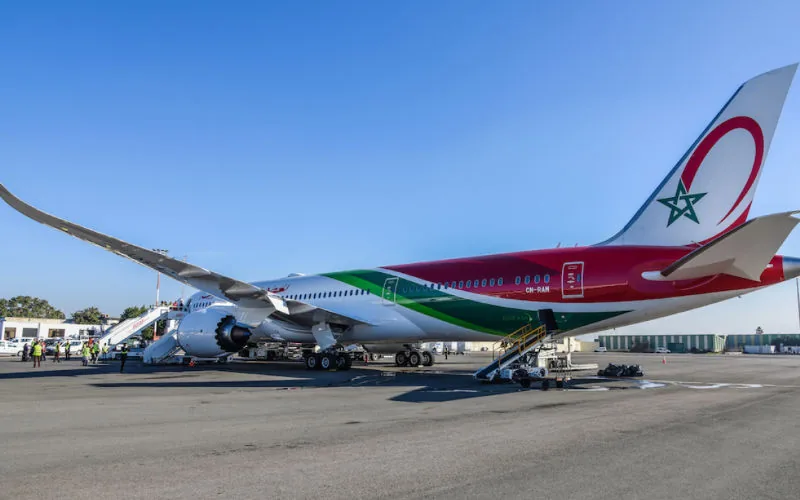Royal Air Maroc Soars: Ambitious Expansion Plan Challenges African Aviation Dominance

In the Maghreb region, while the national airline Royal Air Maroc (RAM) is embarking on its development, Air Algérie is struggling to take off.
With an estimated revenue of $1.7 billion by 2024, 89 international destinations served - including 28 in sub-Saharan Africa -, Royal Air Maroc (RAM) is establishing itself in the Maghreb skies. For Jeune Afrique, RAM positions itself not only as a carrier, but also as a strategic vector of Moroccan soft power. Furthermore, the Moroccan company embodies a diplomacy of influence based on decades of investment, cooperation, and African alliances, it is specified.
To better meet the challenges posed by Morocco’s hosting of major sporting events such as the Africa Cup of Nations (CAN 2025) and the 2030 World Cup, RAM is accelerating its development. The company plans to triple its fleet, from 50 to 130 aircraft by 2030, with a final goal of 200 aircraft by 2037, including Boeing 737, 787, and Embraer 190. The company plans to acquire a dozen new aircraft to enable it to respond to new routes opened in Africa, including N’Djamena, Khartoum, or Kigali.
The modernization of the fleet and the improvement of the passenger experience are at the heart of the strategy to position its airline among the most reliable and comfortable, says RAM CEO Hamid Addou. According to its roadmap, the company wishes to multiply African connections, strengthen South-South interconnectivity, and position Casablanca as a major hub between Africa, Europe, and America. In addition to these actions, the company is developing targeted bilateral agreements, particularly with Air Sénégal and Mauritania Airlines, in order to densify its regional network, while maintaining a high level of service and connectivity. After its Oneworld alliance in 2020, it is establishing itself as the second largest company on the continent, behind Ethiopian Airlines, and aspires to make Morocco a reference air platform.
Meanwhile, Air Algérie is struggling to take off. The airline is having difficulty stabilizing on the African scene. Even its attempt to break into Central and East Africa (Zanzibar, Gabon, Ethiopia, etc.) is hampered by diplomatic tensions, particularly with Mali, and the lack of solid partnerships. In contrast to RAM, the Algerian company operates outside any international alliance, limiting its ability to pool costs or expand its routes through code-sharing agreements.
Related Articles
-

Moroccan Tax Evasion Scandal: Illegal Used Car Dealers Exploit Public Spaces in Major Regions
8 September 2025
-

AI-Powered Tax Dragnet: Morocco’s DGI Unleashes Smart Algorithms to Catch Evaders
8 September 2025
-

Morocco’s Tomato Dominance Crushes Spanish Farmers: EU Imports Soar 269%
8 September 2025
-

Café Controversy: Customer Sues Over Forced Second Drink Policy in Mohammédia
8 September 2025
-

Air Arabia Chaos: Stranded Passengers Miss Funerals and Hospital Visits as Flight Cancellations Spark Outrage
7 September 2025